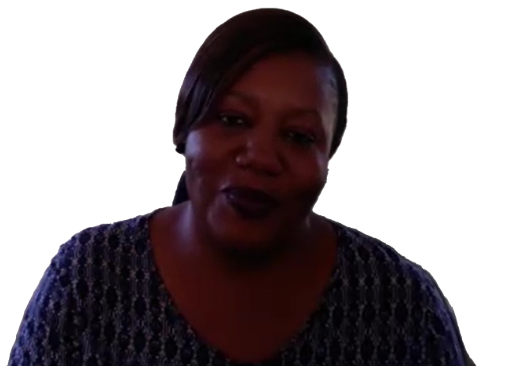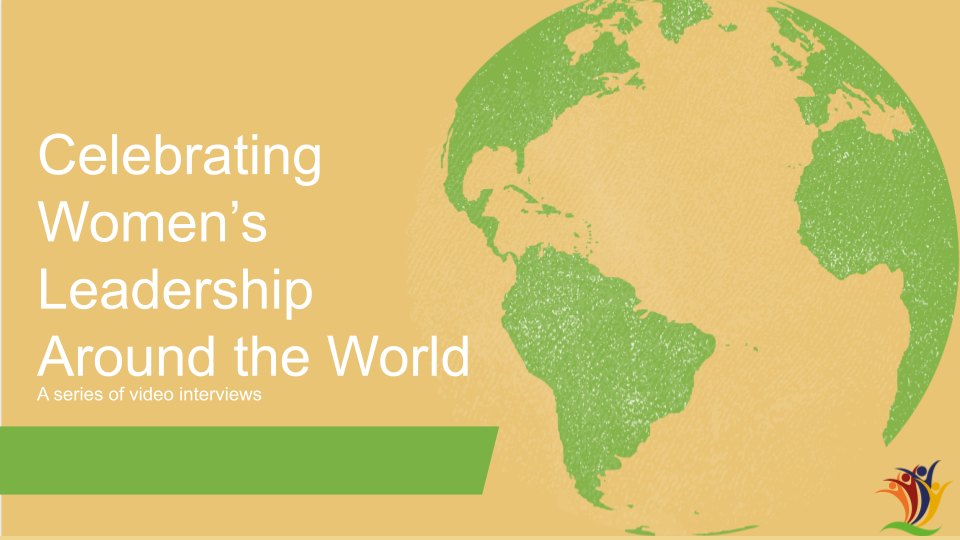This month, MCLD is celebrating women and women’s leadership. Join Charlie Estes as she speaks with women around the world who are working to #ShiftThePower in development.

Jacqueline Chishima-Kalabo is Executive Director of iSanitize in Zambia, a development Non-Governmental Organization working to facilitate, promote, advocate, and build capacities of young people, schools, and communities in rural and peri-urban areas. Their emphasis is for girls, boys, and young women to practice good hygiene and gain access to sustainable hygiene information facilities and tools for good health and poverty alleviation. Learn more about their work here.
So, will you please tell us about yourself and your journey and the work that you do?
My name is Jacqueline Chishimba-Kalabo I am the Executive Director for iSanitize here in Zambia. My journey into iSanitize I think started from the time I went to college for my degree in communication and journalism, and I grew a passion for people, writing stories that were more of a humanitarian nature.
Through discussions with colleagues in the UN and also working in the rural setting of Zambia in a number of secondary schools, I noticed that most of the school learners had challenges with WASH— that’s water, sanitation, and hygiene. And I started thinking on how, you know, I could be part of a people that would change the status quo, and that would also be able to impact many more lives beyond the school learners, that’s in their communities as well. So in 2019, I founded iSanitize, which is a nonprofit, nongovernmental organization working in the WASH sector, but targeting mostly school learners and their underserviced communities, so young women are our focus as well. And we’ve impacted a number of beneficiaries, totaling about 3,095 to date from 2019.
How would you say you developed your leadership, confidence, and voice, especially as a woman in the field?
I think, firstly it was also by listening to and understanding— firstly understanding the role that women play in Africa and in Zambia in the years that I was growing up, not so many women were vocal. And I think coming from a background where I was allowed by my parents to speak, especially after attaining a certain age, I realized that if I use my voice more, it will not only benefit me, but it will benefit others. So in high school, then secondary school, I joined debate club, where I actually did very well, up to national level, and was even a national champion in the country. And I think through the debating club, I was able to understand what it means to have a voice, to contribute to national debate, and to see that out of a voice comes action, and I think that built my confidence going forward from a tender age.
During my career growth, I have learned to listen to other women. Over the years, I have followed women like the late Winnie Mandela, who had a great voice in liberation struggle as a woman but stood out in times that were really difficult, and in times when, obviously it was a very male-dominated continent then. I would also follow our very own women, locally here, that were able to voice out on issues and listen to them. And for some of them, I would probably even have personal conversations with them, just to understand how did they, you know, stand by themselves by using their voice and stand by others by using their voice. And then I think eventually I dropped my fear about, you know, speaking out as a woman and I realized that if we don’t speak out, if we don’t air our views, nobody’s going to speak for us, and nobody’s going to speak for other women. So right now, I’m very confident and very comfortable using my voice constructively and ensuring that it is impactful in changing social lives and in empowering others.
What is the most pressing issue facing women and girls in your community today, whether that’s WASH conditions or something else that you’ve seen?
Mostly it’s menstrual hygiene management. I think we are seeing a— it’s interesting that, you know, centuries on, we still have to battle with menstrual poverty, or period poverty. Most school learners, the female learners, or the girls, are dropping out of school because they’re frustrated they don’t have the menstrual tools to use in schools. Schools don’t have the privacy they require during that time of the month. Sometimes there’s no water, running water, in the schools, so how can the girl really attend to her hygienic needs during that time of the month. So you’ll find that the girls who tend to stay away from school, and eventually they’re so frustrated they drop out of school and find themselves as, you know, young wives, early marriages, and sometimes even child marriages.
How has the pandemic— the Covid-19 pandemic, over the last year affected your work and how has your organization shifted to adapt to the needs of your community, during this— very different time?
You know, amazingly, iSanitize was founded in October 2019. The first cases of Covid were heard in the world in December of that same year. Very coincidental. So we had to shift our strategy immediately to ensure that we try and work within this new normal. But the effects have been negative shocks to the organization, in that we’ve not been able to access the sort of support and funding that we really require to reach out to more schools and more learners, because a lot of organizations were readjusting, you know, how they’re going to work from the usual to the unusual, eventually into the new normal. So we’ve been affected in that sense, and our impact had to be slowed down. So many times, our team members had to work from home, and being a start-up NGO, of course, we couldn’t provide some of the tools that they needed to work with from home. Tools such as internet bundles, you know, perhaps laptops, it wasn’t that easy. And then we had times when certain members of staff, members of the team, had to come in for a few days. I think at the peak of the pandemic in the country we totally sort of had to completely scale down.
Our beneficiaries have suffered the effect as well, because we’re not able to reach them with the information they require. We’re not able to also provide some of the menstrual tools that they need, because we normally lobby from partners both public and private sector to help us with sanitary pads. You know, also some materials and tools that help a girl get by school and overcome any form of hygiene and period poverty. So the effect has been very negative. However, we did not want to sit so much on the negative side of Covid, so we decided again to strategize with the team and found ways in which we could work. We embraced working virtually, and I think slowly we’re picking up. And we said to ourselves, against all odds, we just need to rise, and be able to start engaging with our beneficiaries again. It is a bit of a challenge to engage with school learners, because most of our schools in Zambia do not have reliable internet facilities, so we can’t even connect virtual engagement. What works best is physical. And also we realize that sometimes, because of language barriers, it’s very important that you’re actually on the ground, and speak to the learners in our ethnic languages, so that they receive the correct information. Yes. so overall, we’ve really been affected negatively, but we’re trying as hard as possible and as smartly as we can to, you know, to find ways of staying in the storm but not being affected by the storm.
Is there a woman in your life or your community that has inspired you, either throughout the last year during the pandemic or just throughout your life in general?
I’ll be honest with you, the women have been many. From, you know, in my family, I will mention my grandmother– my late grandmother, my mother’s mom. I think I saw a woman that was hard working, single-handedly was able to run a business, single-handedly raised children, sent children to school. My mother as well.
In the last year, in Zambia, I think we have seen a number of women that have really worked so hard during this pandemic. One of those women is Nambula Kachumi. Nambula Kachumi is the Executive Director for the Women Entrepreneurs Access Center in Zambia, widely supported by the US State Department. And I think that during the pandemic, her and her team still continued to conduct their activities and reach as many female, young women and older women, entrepreneurs in Zambia that were acquiring funding, and still, you know, took them through the DreamBuilders program, where I sit as a mentor, and they were able to access finance for their business. So I’ve really been inspired by Nambula. The last one year she’s been amazing.
I’ve also been inspired by Lowani Chibesakunda who is Executive Director for Citi— CitiGroup here in Zambia. I think she’s come to the fore to head such a big bank, corporate bank, and has inspired— I was part of a team that heard her story, and I was very inspired that she’s worked hard, she’s used her voice, she was never scared to sit at the table, even if the women, yes. So, I think those two have really made my year last year.
That’s really great. Last question, what is one thing that gives you hope and the motivation to continue pursuing gender equality and better conditions for the girls and women around you?
One thing is that once a girl or a woman is empowered, it is very clear, and evidence has shown, world over, that more people are impacted. So for me, that keeps me going. I know that, if we can impact that one girl, that thought that’s the end of her world because she started her periods, and she wants to drop off school, but instead we held her hand, we helped her, we gave her the correct information, we show the way to acquire the services from materials and tools, we taught her how to be self reliant at a tender age, it means that she will realize her dream, and definitely her dream will impact more people. I had an opportunity to realize my dream, my family, my community, gave me that opportunity, and today I keep impacting more. So in order for us to attain gender equality, and then what makes me, you know, going in that area, is just the fact that the more women are impacted positively, in their education, in their lives, and their sexuality, in them understanding that their periods are normal in every society that they are in. I think the more we move towards gender equality without more difficulty, and the more the message is spread quickly, the impact in also bringing more women to the table. Thank you.
Thank you so much.


